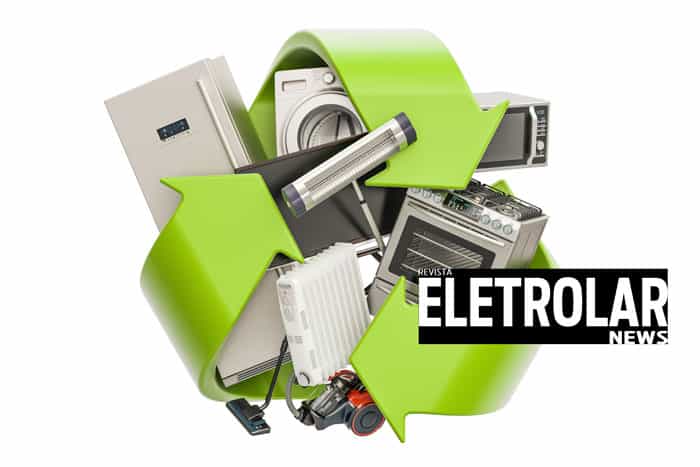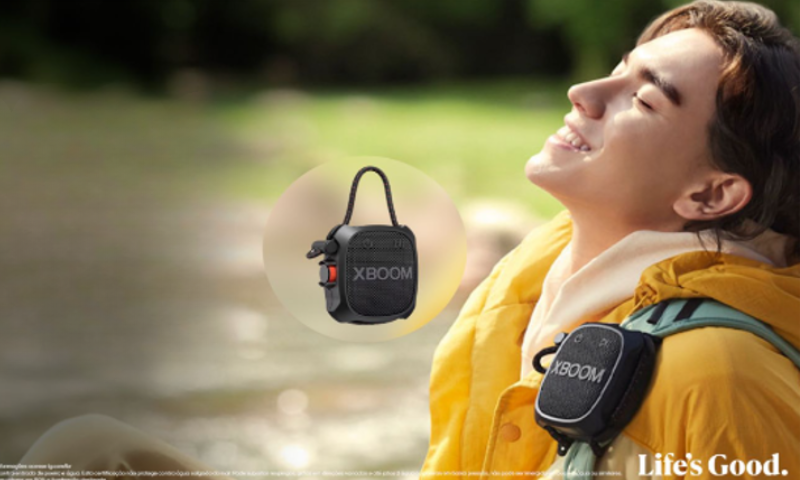
RECYCLING OF ELECTRONICS: NOW IT’S FOR REAL!
by Leda Cavalcanti
It took a while, but the decree arrived and is in effect. It is a big challenge, and the goals for the ecosystem are daring. “Everyone must meet these goals and the products mentioned in the decree, as the success of each stage depends on the participation and collaboration of the entities in the chain”, says Sérgio de Carvalho Maurício, president of the Brazilian Association for the Recycling of Electronics and Appliances (Abree), in an interview for Eletrolar News.
How will each link in the chain contribute?
Sérgio de Carvalho Maurício – The contribution begins with the consumer, who takes his/her products to the collection points. Then, it continues with the retailer, which houses collection points so that the consumer has alternatives for disposal in an environmentally correct manner. This is where Abree’s work begins, it represents its associates (manufacturers, importers, distributors) for reverse logistics and the recycling of appliances and electronics. Our attention is focused on the construction of this ecosystem, as the oldest and most representative management entity that defines, organizes and manages solid waste, implementing collective reverse logistics systems.
Abree also points out the importance of the consumer paying attention not only to the surveillance of their data at the time of disposal, but also emphasizes the importance of creating a culture in the country where the products at the end of their life cycle are delivered to points of receipt so that they have an environmentally correct destination.
The decree foresees the start of targets in 2021. Perhaps, towards the end of this year Abree and the market will have a percentage of the volume collected for recycling. The decree anticipates 1% of products manufactured, by weight, in 2018. That is, 1% of all material placed on the market.
What costs will the sectors involved have to bear?
SCM – As a non-profit entity and due to our submission to CADE (we were the first management entity to defer to the board in the country), we are prohibited and do not discuss price or competitiveness as these are competing members.
A point related to costs is the tax issue, and we seek to reduce the bureaucracy of the reverse logistics system. Brazil is a country with a continental dimension, we have the challenge of transporting waste between states for recycling and we aim to exempt this transport because it is of environmental interest, and because the tax obligations on the product have already been collected. We are trying to resolve this with some states because, when the product is discarded, it has already had all of its chain tax paid, and it makes no sense, in post-consumption, to be taxed again.
What are the biggest difficulties for recycling?
SCM – The population awareness is one of them. Brazilians need to develop this sense of sustainability; we still see disposable garbage in the rivers. In addition, not all states have an adequate destination. In cities that already have a disposal philosophy, such as Curitiba (PR), the work is simpler.

We are developing a trade in project with retailers. The retailer offers the consumer the delivery of the old product in the purchase of a new one, in order to provide a discount or to dispose of it in an environmentally correct manner.
Is there a forecast of how much will be collected this year?
SCM – The decree foresees the start of targets in 2021. Perhaps, towards the end of this year Abree and the market will have a percentage of the volume collected for recycling. The decree anticipates 1% of products manufactured, by weight, in 2018. That is, 1% of all material placed on the market.
How is the product disposed of?
SCM – The consumer is responsible for sending the product to a collection point in your city. Reverse logistics starts on receipt, but Abree’s work also includes the accreditation of collection points through partnerships and training for operations. A product receiving point is an area for the unloading and final destination of electronics and home appliances, agreed between the association and the respective partner, which can be retail or city halls, for example.
We classify these points so that the consumer has information on where to dispose of each type of product in order to give it an environmentally appropriate destination. We try to position the receiving points close to consumers centers. This reduces costs. The mechanism is that they are all divided by category, with spaces to receive large and medium-sized products, which are easier to store. They can be placed next to a collector inside the retail, for example. We are surrounding ourselves with modalities to receive large-scale products and creating mechanisms to increase the receiving branches.
Another manner the association acts is through partnerships with the municipality, which is a very positive process, as it allows for easy absorption in spaces already created, such as ecopoints. The municipalities with which we have partnerships already have practices for receiving appliances and electronics, such as “cata-treco” and “cata-bagulho” operations.
We are developing a trade in project with retailers. The retailer offers the consumer the delivery of the old product in the purchase of a new one, in order to provide a discount or to dispose of it in an environmentally correct manner.
How many receiving points are there in the country?
SCM – We have expanded to 1,300 receiving points throughout Brazil, and the increase will be gradual. We are constantly developing and implementing more receiving points. We have three lines of action: municipalities, partnerships (companies) and retailers, because it facilitates contact with the consumer. Today, we have six municipalities in the State of São Paulo. We also intend to reach consortia to be able to scale further.
Does the implementation occur even without the standardization of taxation on disposed products?
SCM – Yes, it occurs even without this standardization, because Federal Decree 10.240 / 2020, approved in February 2020, provides so. Inspection on disposal and transit between states takes place at the state level and, in any case, we will have to carry out the operation. Our job is to assist in clarifying, so that the operation takes place in a less bureaucratic way.

http://abree.org.br/seliga/ in this site you can access information on the nearest receiving point to you.
Eletrolar News Magazine 142
eletrolar.com





